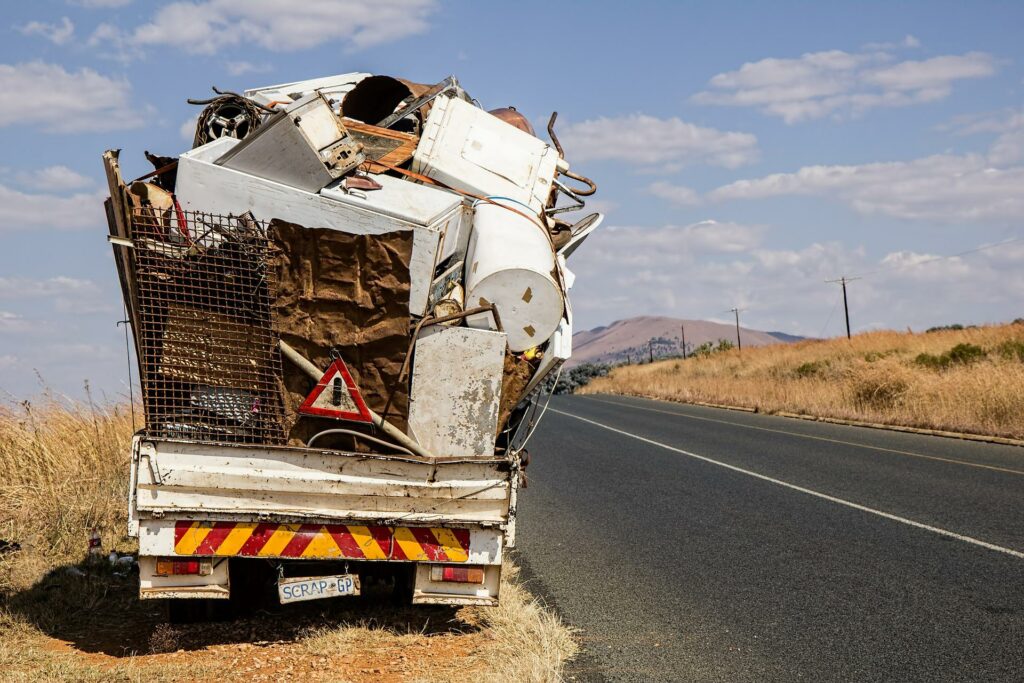What Must be Done in order to Stop Mass Plastic Pollution on Earth?
Despite the environmental impact of plastic on earth, our reliance on plastic is growing exponentially. Due to its easy accessibility and low cost, plastic has become people’s best choice for everyday use. This explains why landfills are filled with plastic waste. The biggest problem with plastic waste is that it stays in landfills for hundreds of years. It enters the seawater and kills the marine life. Water animals ingest this plastic mistaking it for prey. Besides, the plastic often breaks down into tiny particles and is absorbed in the water. Either way, animals end up ingesting this plastic. Up to 12 million tonnes of plastic is found in the oceans every year. This leads to plastic pollution, where the plastic is accumulated in large amounts in oceans and landfills, causing harm to wildlife and humans.
In addition to posing a threat to marine life, plastic is a non-biodegradable material and is likely to stay in the landfill for longer than other types of waste. You must have heard of the news of the animals dying because of plastic. Plastic extracted from a turtle’s nostrils and a whale swallowing hundreds of plastic bags are only to name a few. With a considerable amount of plastic is dumped into the oceans every day, plastic has clogged oceans in the cities
Surprisingly, most of this plastic waste consists of recyclable materials. Instead of throwing them into landfills or rivers, these items should be sent to the recycling centers. The government is doing its part in protecting the planet from mass plastic pollution. Many countries have banned plastic bags and disposables so that people avoid single-use plastic items as much as possible. But, what can we do to take part in this campaign? It’s the collaborative effort that will make a difference when it comes to reducing plastic pollution. In this post, we have compiled a list of the few steps for stopping mass plastic pollution on Earth. Let’s take a look:

Recycle as Much as Possible
Scientists and researchers put stress on recycling, as it is the only way to reduce the amount of plastic dumped into landfills. Sadly, only a few types of plastic items are recyclable. A large chunk of it can’t be recycled and is thrown straight into the landfills. Still, taking some time to classify plastic into the recyclable and non-recyclable categories will be worth it.
The government has launched many recycling programs to help individuals recognize recyclable plastic waste and put it into the recycling bin instead of throwing it away. As a general rule, paper, cardboard, plastic bottles, and disposable cups can be recycled. Beverage and water bottles that are #1 plastic can be recycled. Detergent bottles and juice bottles are marked #2. Cutlery and ketchup bottles are marked #5. These can also be recycled. Head to the nearest junkyard to learn more about which plastic can be recycled and which isn’t fit for recycling. They will tell you about recyclable plastic waste. You can also ask them to create a list of plastic items they accept.
Abandon Single-use Plastic
Nothing harms the environment as much as single-use plastic — use it once and throw it away. You will be surprised to notice how often you use disposable plastic items in your daily life. Single-use plastic has become prevalent worldwide — from grocery bags to disposable platters. Many packaged items come in plastic packaging. After a single-use, they end up in your trash cans and eventually discarded in the landfills. You can’t abandon plastic immediately, but identifying your plastic usage and making a list of its alternatives is a good place to start.
Avoid plastic straws. It is one of the most commonly found plastic wastes in the oceans and is the most hazardous. The worst part is that plastic straws can’t be recycled. McDonald’s and Starbucks are the two popular food companies that have replaced plastic straws with paper straws. Likewise, individuals are doing their part for the planet by buying paper straws or boycotting companies serving food in plastic dishes. If you can’t do without straws, plenty of eco-friendly and reusable alternatives exist. Metal and bamboo, for example, are the best options.
Of course, this doesn’t mean you must spend on expensive wood or bamboo cutlery. Just bring your regular metal dishes, water bottles, and cups to work. Your old plastic water bottle will also do. Don’t buy new plastic cutlery or bottles.
Try Alternative Packaging
To reduce their environmental impact, businesses must switch their packaging materials with sustainable options, such as paper bags and other recyclable items. If you own a business or are planning to start one, keep paper bags for packing. Cardboard is another eco-friendly alternative to plastic packaging. Consumers have also become conscious about packaging, more now than ever before. They no longer buy food and other grocery items from stores that pack their order in plastic bags. If plastic can’t be avoided altogether, you can try bioplastic. It’s comparatively better and can biodegrade faster than regular plastic.
Monitor Your Trash Regularly
A trash audit gives us a clear picture of the items we throw away frequently. Most people throw the used products into trash cans without a second thought. By conducting a trash audit, we can know which plastic items comprise a considerable amount of household waste. Based on this, we can figure out alternatives to these products. For instance, if you find a large number of disposable cups in the trash can, it implies that you need reusable cups. Or, if you notice too many chip packets in bins, you should buy bigger packets next time or buy chips in recyclable packets.
Do Not Buy Plastic Bottles
The biggest culprit of the growing water pollution is plastic bottles. Tons of these bottles are discarded into oceans every year. Not only does it harm the environment, but plastic bottles are not good for your health. You should rather bring your own metal bottle — whether you are going on a vacation or to work, always bring a reusable water bottle and refill it using the tap water.
Now, some people buy plastic bottles because they are concerned about tap water quality. Of course, this water might not suit everyone. Fortunately, the bottles with built-in filters are available now. You can use these bottles to ensure good water quality while protecting the environment from unnecessary trash.
Cook More Food
Even though the government in many developed and developing nations has banned plastic bags for food items, many markets still use them. You will find vegetables and fruits wrapped in polythene bags in supermarkets and at your local grocery stores. One thing you can do to avoid it is to bring your own paper or cloth bags to the supermarkets. But, we have a better alternative. You can cook more food at home. It has two significant benefits — you get to eat food from fresh food, and you get to do your part for the planet by avoiding plastic bags.
Not everyone has the time and resources to grow their own food. For example, it needs a large backyard and the time to take care of your plants to grow fresh fruits. If you can’t do that, buy food and grocery from local markets. Don’t import. It will increase your carbon footprint drastically. First of all, imported items come in many layers of plastic packaging. Secondly, these products consume a lot of fuel and energy during transportation. Instead of importing, support your local farmers. So, buy locally.

Buy Secondhand
New items come in plastic packaging. It isn’t just one plastic bag, but plenty of them. Think about the last time you bought a new toy or an electronic item. Chances are it came wrapped in a couple of plastic polythenes. These plastic bags end up straight into your trash cans. Instead of buying new items, consider investing in second-hand products. You can find many second-hand products in good condition. In fact, some people upload their products on Craigslist after a single-use. Not only do second-hand products benefit the environment, but they can save you a few bucks. So, the next time you need a new item, check for used items at the thrift stores.
Buy Products in Bulk
If you find too many plastic bags in your trash can, consider making a bulk purchase. Buy your grocery in bulk. Instead of buying too many small plastic containers, buy a large one that lasts many days. This will reduce the number of plastic packets in your trash can. Besides, it will reduce your trips to the grocery stores.
Bottom Line
These are a few steps people can take to reduce their plastics usage and limit the amount of plastics waste in landfills. You should also put pressure on the manufacturer to make smart and eco-friendly packaging choices. This can be done by switching to brands that pack their products in sustainable packaging instead of plastic bags.


👍👍😊